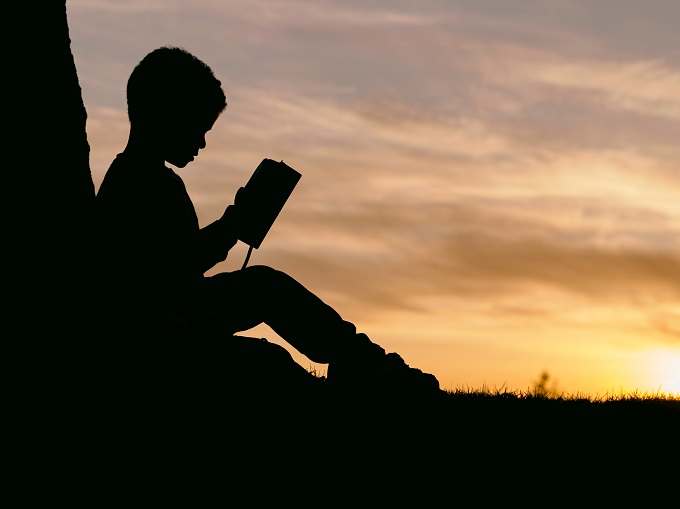
Photo by Aaron Burden on Unsplash
<p>Not only have the challenges of transitioning to remote learning been unprecedented, but the experience has emphasised some of the greatest issues currently facing our education system.</p>
<p>Now as schools across the country look to welcome students back into the classroom, leading educators and academics are urging the sector to consider whether and how lessons learned from lockdown can become a catalyst for reform.</p>
<p>This week The Education Hub founder Dr Nina Hood launched a new research project aimed at capturing reflections on lockdown from New Zealand’s principals, teachers, students and parents. She believes these insights could play a crucial role in reshaping our education sector and ensuring a brighter future for<i> all</i> New Zealanders.</p>
<blockquote>
<p>“The physical closure of schools has shone a spotlight on some of the persistent and systemic challenges facing our education system, providing an invaluable opportunity to refocus our attention and efforts on them,” says Dr Hood.</p>
</blockquote>
<p>“It further has created a space for asking big questions about education; do we want to return to the status quo and business as usual when schools reopen? Might the lockdown period act as a catalyst for education reforms that many have been seeking? And if so, what should we be looking to change?”</p>
<p>Dr Hood says there are five key areas which have emerged strongly from lockdown, and believes they offer valuable insights for positive change.</p>
<h3><strong>Equity, schools and society</strong></h3>
<p>This period of home learning has made readily apparent the profound disparities in children’s access to support and <a class="wpil_keyword_link" href="https://www.schoolnews.co.nz/2015/10/developing-opportunities-at-school-with-a-view/" title="opportunities" data-wpil-keyword-link="linked" target="_blank">opportunities</a>. This perhaps has been most manifest in some students’ [lack of] access to a digital device and wifi connection at home.</p>
<p>However, this is just one aspect of the huge variation in resources available at home to support students’ learning, which also includes a suitable place to engage in learning, parents’ capacity to support learning, and access to books and other materials. Added to this are the capacity and readiness of individual students to learn, and the requisite foundation, including knowledge, learning skills and social and emotional competencies, required to enable them to do this effectively.</p>
<h3><strong>The role of teachers</strong></h3>
<p>There is an opportunity to think deeply about what it means to be a teacher and how we conceptualise the role of the teacher within schools and schooling. While some fear that the shift to online and distance learning will prompt an irreversible move towards reducing the role of the human teacher in place of technology, I hope that the opposite is true.</p>
<p>While increasingly we are seeing the erosion of boundaries between the digital and the non-digital, between human and the machine, it is possible to leverage the pervasive power of technology to elevate the human in teaching. There is an opportunity to reinforce a humanist approach to education, emphasising teaching and learning as a social and relational enterprise.</p>
<h3><strong>Learning priorities, the curriculum and teaching resources</strong> </h3>
<p>A consistent piece of advice to teachers over the past few weeks has been to reduce the amount of content you are trying to cover and to identify key learning priorities. In time, it will be valuable to reflect on what these priorities were, what they mean for teaching and learning moving forward, and whether they represent a new model for approaching the curriculum. The current situation also provides an opportunity to re-engage with and elevate some of the curriculum conversations that have emerged in recent years, including consideration of the role and production of teaching materials and resources.</p>
<h3><strong>Pedagogy and effective teaching</strong></h3>
<p>There has been no shortage of advice around how to approach distance teaching and learning. What is fascinating, is that much of it seems to be based on well-established principles effective [in-person] teaching. There is an opportunity to consider how some of the pedagogical approaches and learning mindsets being advocated for and incorporated into teaching and learning at present might also be meaningfully [re]integrated into face-to-face classrooms.</p>
<h3><strong>The importance of systems, structures and school culture</strong></h3>
<p>It has become clear over the lockdown period that those schools that developed clear systems and processes to underpin their move to distance learning and had a strong school culture within which to situate and embed these new approaches, tended to fare better. As schools shift their focus towards considering what life will be like when they reopen fully, there is an opportunity to think about the systems, structures and culture that should be underpinning their core work.</p>
<h6>These insights will underpin Dr Hood’s research project, which kicks off this week with the distribution of surveys to all schools nationwide, the launch of a competition to encourage student feedback, and a series of webinars which explore lockdown from a variety of perspectives. <a href="https://theeducationhub.org.nz/school-survey-lessons-from-lockdown/" target="_blank">Click here for more information on the project. </a> </h6>

EXCLUSIVE: Teachers used to be paid two to three times more than minimum wage workers,…
After an “overwhelming” vote to reject the latest Government offer, secondary school teachers will begin…
Second-language learning should be compulsory, says a new report from a forum bringing together academics,…
A new entitlement aimed to improve access to learning support coordinators for schools with students…
Educators have raised questions about the Ministry of Education’s new secondary school subjects, set to…
Professional learning and development (PLD) for teachers needs to be higher impact for teachers and…
This website uses cookies.